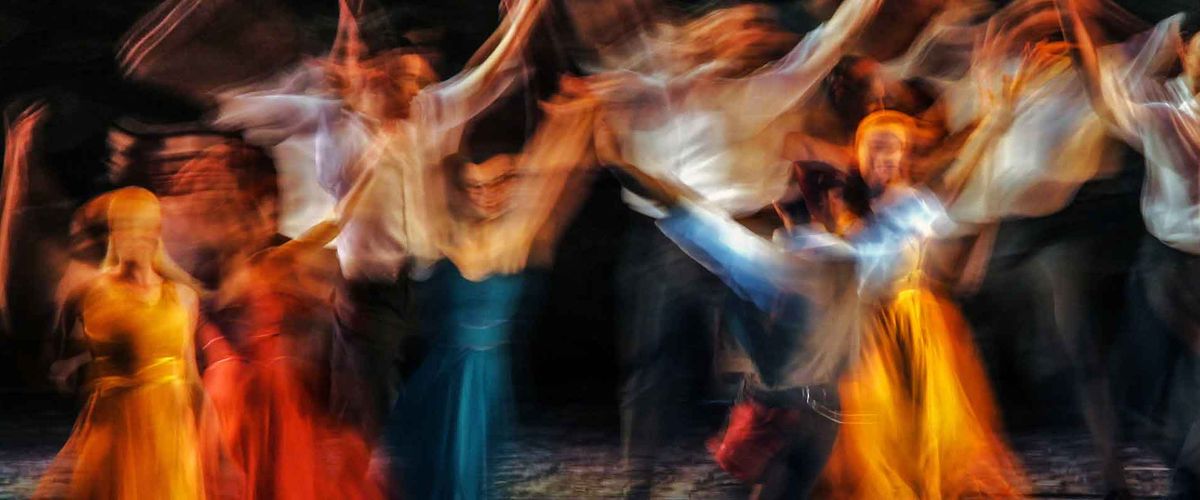In Nonprofit World’s Fraught Financial Future, BU MET Arts Admin Director DeNatale Sees Security in Scale
Like so many industries, the businesses of arts and culture have been rocked by setbacks amid the global coronavirus pandemic. Now, as occupancy bans begin to lift, vaccines are distributed, and resilience funding remitted to organizations and individuals dedicated to keeping the world afloat through arts, decision-makers are figuring out how the shows that must can go on.
As director of Arts Administration at BU’s Metropolitan College (MET), Dr. Douglas DeNatale helps prepare tomorrow’s cultural entrepreneurs, artists, producers, curators, policy-makers, and arts managers for the challenge of supporting and administrating the arts in contemporary society, in the face of ongoing change and adjustment.
In courses he teaches, like Technology and Arts Administration (MET AR 740), BU MET students benefit from DeNatale’s experience in the research and technology aspect of the creative economy, and learn important lessons about how to best navigate the future of the arts and cultural industry.
As an authority on the field, the director provided comment for a data-driven Boston Globe report on the financial health of the arts a year into the global pandemic, part of the Globe’s “Arts in a Changed World” coverage.
The report surveyed the toll a year of public health-mandated closures and challenges to fundraising and ticket-selling efforts have taken on arts organizations in Massachusetts, long a national bellwether in arts and cultural philanthropy.
Since the pandemic began last March, nonprofit and municipal cultural organizations reported more than 30,000 Massachusetts jobs impacted by layoffs, furloughs, or wage reductions—13,566 in Greater Boston—according to impact surveys of roughly 900 artists and organizations by the Mass Cultural Council (MCC)—mounting a reported $588 million in losses.
DeNatale told the Globe that certain groups are better equipped to survive COVID-19 than others, and that he believes larger legacy organizations, like museums and zoos, will be advantaged in their recovery. He also expressed confidence that smaller, volunteer-based organizations should “come through pretty well.”
Mid-size organizations, however, may be compelled to get innovative. “That’s where I expect there will be serious loss,” DeNatale said.
Still, there are growing signs of promise for the business of arts and culture. More than ever, support for the arts goes a long way, and funding and financing opportunities have finally returned.
From March’s outset of the pandemic through August 2020, at least 91 Massachusetts cultural institutions were able to take advantage of the federal Paycheck Protection Program, according to numbers DeNatale provided. In December, he contributed to a Boston Indicators data report, “The Pandemic’s Impact on Artists and the Arts Ecosystem,” that found most PPP loans distributed to arts orgs fell in the $150,000—$350,000 range (although data about loans less than $150,000 remains limited).
Beyond loans, grants targeted at the arts are also being released. In January, the Mass Cultural Council announced $10 million awarded to 183 Massachusetts cultural nonprofits in light of pandemic losses, dedicated to “expanding opportunity for job seekers, assisting communities as they plan and adapt, and helping to create a foundation to build upon in the months ahead,” according to Massachusetts Governor Charlie Baker.
Funded by the federal CARES Act, monies from The Cultural Organization Economic Recovery Grant Program went to organizations of all shapes and sizes. Awards ranged from $1,000 to as high as $100,000, with $5.4 million going in support of 136 small cultural nonprofits with teams of 10 or less full-time employees. Thirteen groups were first-time MCC grant recipients, and 51 were cultural nonprofits primarily dedicated to presenting, promoting, and/or preserving culture of the historically underrepresented and marginalized.
The MCC’s next aim is to restore $2 million in funding cuts to the council’s $18 million budget proposed by the Baker administration, or advance an increase to $20 million; then comes a proposed bill to allocate for cultural institutions at least $200 million from any incoming COVID-19 relief the state receives—of particular importance after President Biden’s $1.9 trillion federal coronavirus relief bill set aside $470 million for cultural organizations.
What will follow will be the chance to capitalize on the wealth of returning opportunity.
“People want to come back,” DeNatale says. “But there needs to be a public perception that these are safe spaces.”
The greatest need following safety will be strategy. As the MCC reported, of the $116.8 million estimated total cost of reopening the arts world, only $10.5 million would be earmarked for capital improvements to facilities that accommodate public safely—the remaining $106.3 million would be dedicated to strategy—namely, non-capital COVID reopening strategies to reengage with the public.
Reestablishing relationships between artists, audiences, supporters, administrations, and venues will be challenging work—a delicate balance that will demand creative problem solving, skills in leadership and philanthropy skills as well as an understanding of the complexities of the nonprofit sector—the very traits developed by BU MET’s programs in arts administration, fundraising management, and performing arts. The MS in Arts Administration can be completed in 12-24 months.
Read more in the Boston Globe.
